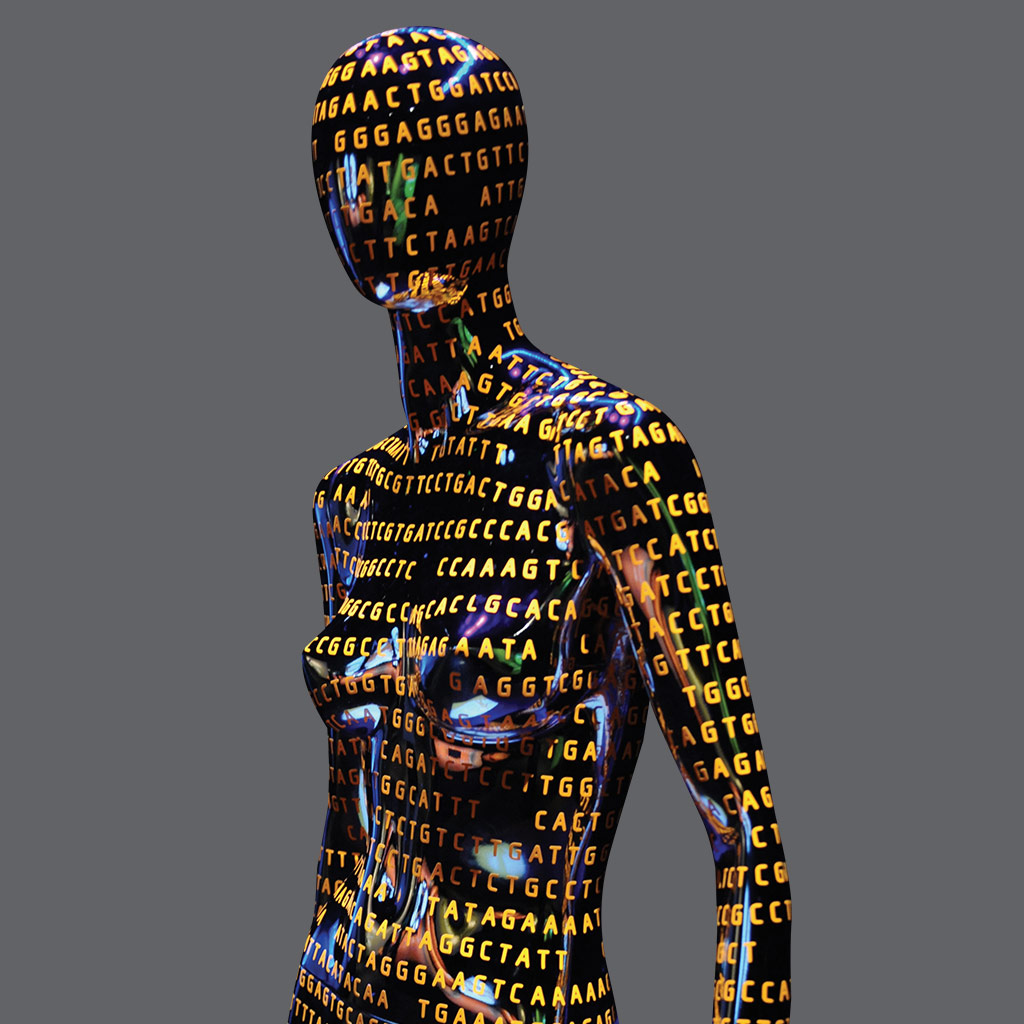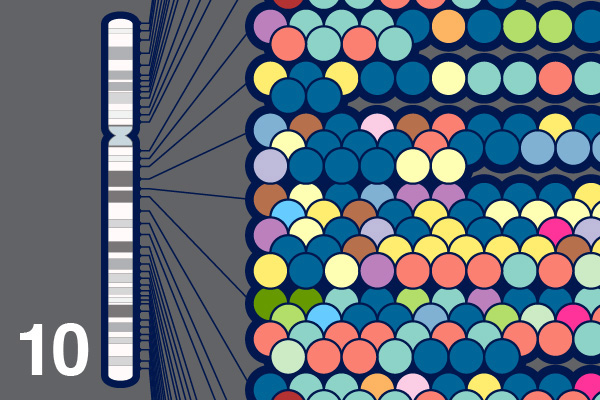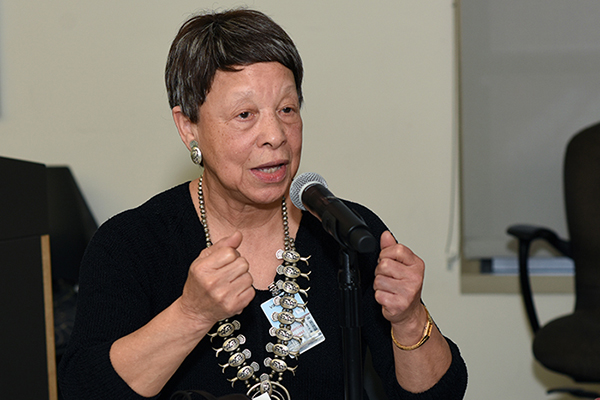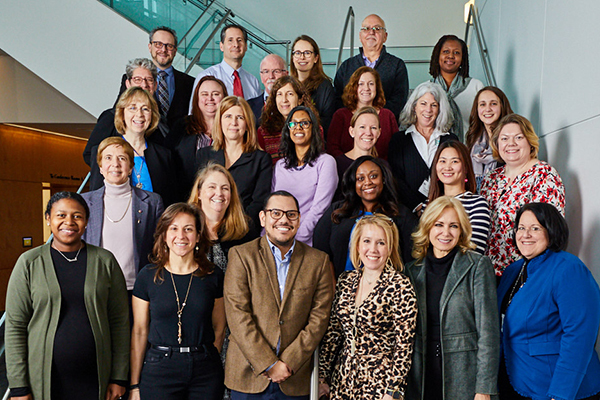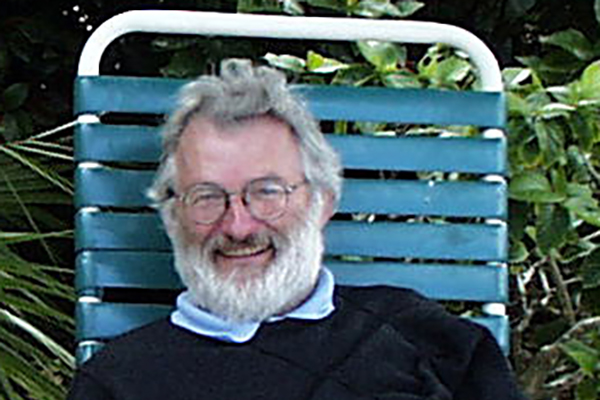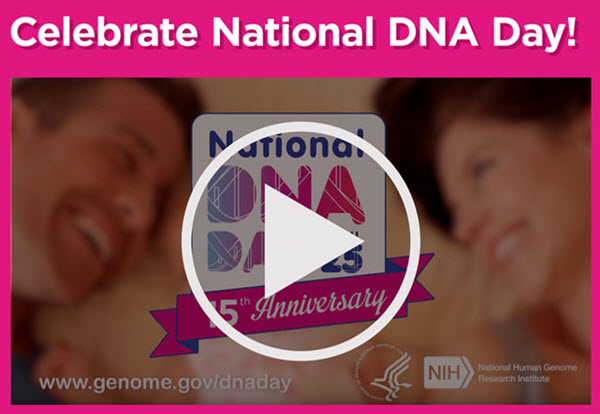
On April 25, NHGRI and the genomics community will celebrate a yearly highlight - National DNA Day. On this day, students, teachers, and the public are engaged and encouraged to learn more about how advances in genetics and genomics are changing people's lives and what the future holds. This year's National DNA Day features an exciting assortment of online and in-person events, all of which are open to the general community. These activities include a Reddit Ask-Me-Anything (AMA) Series on April 20-27 (from 1:00 to 3:00 PM Eastern Time); a Facebook Live broadcast of NHGRI's National DNA Day speaker, Dr. Olivier Noel (CEO of DNA Simple) on April 25 from 4:00 to 5:30 PM Eastern Time; and a HOT Topic Lecture on the human microbiome, given by Dr. Lita Proctor from NHGRI's Extramural Research Program on April 27 (from 4:00 to 5:00 PM Eastern Time).
The first AMA on April 20 will feature NIH Director Dr. Francis Collins, who will be discussing the history of the Human Genome Project and precision medicine.
2018 is a special year for genomics, marking the 15th anniversary of the completion of the Human Genome Project. To mark this occasion, the 2018 National DNA Day will be associated with a novel element - called the '15 for 15' Celebration. This electronic celebration showcases 15 topics that illustrate key genomic advances that have occurred over the past 15 years and the increasing importance of genetics and genomics in peoples' lives. Starting today and on each weekday through National DNA Day, NHGRI will reveal 1 of the 15 topics in the '15 for 15' Celebration. Each topic will be featured through written, graphic, video, and other educational modalities - all freely available for review and use.
Kicking off the '15 for 15' Celebration is the first topic, which was revealed today: DNA Sequencing. Advances in DNA sequencing technologies have reduced the cost of sequencing a human genome by a million-fold, transforming almost all aspects of genomics. To learn more about this and the other '15 for 15' Celebration topics, check out the '15 for 15' Celebration webpage.
National DNA Day and the '15 for 15' Celebration are each part of broader NHGRI's programs that aim to enhance genomic literacy and to help prepare members of the public for their genomics-enabled future. These efforts are also designed to spark conversations about how genomic advances are affecting everyday lives.
Related to the above efforts to enhance genomic literacy, NHGRI will also participate later this month in the USA Science and Engineering Festival, a celebration of STEM education. This is the fifth time that NHGRI will participate in the festival, which takes place in downtown Washington, DC. NIH as a whole will have a very large "footprint" at the festival, with 21 booths designed to engage visitors and convey amazing science. Attendance is expected to top 300,000 people, making this one of the largest events to ever occur at the Washington, DC Convention Center. NHGRI's booth will feature opportunities to learn about genetic traits and to extract DNA from strawberries. In previous years, over 500 strawberries provided their DNA for these demonstrations!
To see our Public Service Announcement about National DNA Day, visit our GenomeTV YouTube channel. Follow the conversation on Twitter using #DNADay and #15for15. Remember to sign up for the National DNA Day Newsletter and to visit the National DNA Day webpage to register your events on the National DNA Day Network Map. The map helps to promote the great work being done across the country. Also, you can sign up for the National DNA Day Newsletter to receive the daily updates about the '15 for 15' Celebration. For more information about the '15 for 15' Celebration, visit the '15 for 15' Celebration webpage.
![]()

